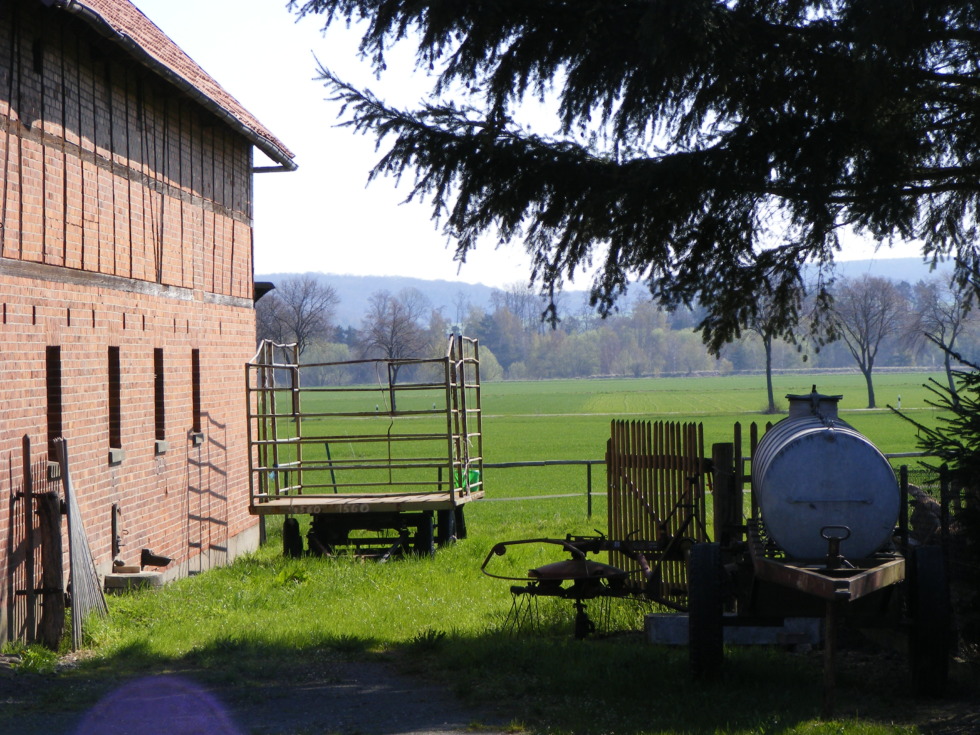Every summer, Herbert Dorfmann – one of Italy’s representatives in the European Parliament – joins politicians from across the alpine region to hike with farming groups. The one-day stroll offers a chance for powerful agricultural unions to give their thoughts on key EU farming legislation.
In recent years, one topic has been front and centre: the EU’s ambitious Farm to Fork plans to reform agriculture to better protect nature and climate. In Dorfmann, the unions have found a sympathetic ear. He, along with many of the lobby groups he meets up in the Alps, has opposed proposals to slash pesticide and fertiliser use, and restore damaged ecosystems.
The hike is just one example of the links – uncovered by an October DeSmog investigation – between large farming unions and six influential MEPs who oppose nature-friendly laws, all of whom, like Dorfmann, are members of the conservative European People’s Party, or EPP.
Ahead of the European elections next year, the EPP are pitching themselves as the “farmers’ representatives” in Brussels. Their bid to capture rural votes has hinged on claiming to protect farmers from a number of key green reforms, which scientists insist are critical to secure the future of food, but the party says will ruin the agricultural sector.
These close ties between industry and Conservative politicians are starting to be called into question by farmers. A number of small-scale producers have told DeSmog the EPP has been listening to only one kind of farming interest: large-scale industrial operations. The smaller producers do not feel represented.
“We are given so little space by these powerful MEPs, compared to the large-scale unions,” says Morgan Ody, a vegetable farmer in the French region of Bretagne. “With the climate and biodiversity crisis, we can’t take food and farming for granted. But it’s very difficult to challenge that power and ask for public interest measures.”
The pushback from MEPs and agribusiness interests comes at a crucial time for nature-friendly laws in Europe, which are aimed at tackling greenhouse gases driven by agriculture – some 10 percent of the EU’s total – and protecting its plummeting species of birds, bees and butterflies.
Parliament will vote on the pesticide regulation on 22 November, and campaigners worry that the final text could be severely weakened, with legally binding reduction targets for member states removed from the text entirely.
Last week, EU negotiators reached an agreement on the EU’s plans for restoring 20 percent of damaged ecosystems through the Nature Restoration Law, pending final approval from Parliament and member states later this year. Targets to renature 10 percent of farmland have been removed – a decision celebrated by the EPP.
“It’s very clear that change is needed,” says Franziskus Forster, policy officer in Austria’s smallholder union Österreichische Berg- und Kleinbäuerinnen Vereinigung. “Ecological concerns are not just another interest. They will determine the future of farming.
“There are lots of open questions, but we have to find solutions – solutions that work for the majority of farmers. The EPP has destroyed debate,” he adds.
Copa-Cogeca’s Outsize Influence
In recent years, one particular group has dominated discussions with the EPP: Copa-Cogeca, the EU’s largest agricultural union, which has vehemently opposed the Farm to Fork reforms.
A recent investigation by DeSmog found that of all meetings held between a sample of influential politicians from the EPP and farming unions on major green reforms, 75 percent were with Copa-Cogeca, its national members or its members’ regional branches.
The analysis looked at six politicians from the party, all of whom sit on major decision making committees for agriculture and the environment: Austria’s Alexander Bernhuber, Norbert Lins and Christine Schneider from Germany, France’s Anne Sander, Herbert Dorfmann from Italy and Slovenia’s Franc Bogovič.
Copa-Cogeca is a controversial group in the farming world.
The union says it speaks for 22 million farmers in the EU, which has 9.1 million holdings. However in June, Copa Cogeca acknowledged that the figure was inflated and that its actual membership was unknown, following an investigation by Politico and Lighthouse Reports.
“Copa-Cogeca claims to represent all farmers, but it’s not true,” says Morgan Ody, who is a coordinator for the peasants’ union La Via Campesina. “It’s very obvious they represent large-scale operations and businesses in the agri sector.”
Ody points to the union’s name, which refers to two separate associations: one (Copa) representing farmers and the other (Cogeca) representing agricultural cooperatives, which are often powerful market players for the sale of crops, agrochemicals, livestock and other products.
“Small farmers, including those that belong to Copa-Cogeca, feel sidelined and ignored,” says Lighthouse Reports’ Thin Lei Win, one of the journalists behind the Lighthouse and Politico investigation, in which 120 farmers, insiders, politicians, academics and activists were interviewed, and 50 Copa-Cogeca affiliates surveyed.
“Farmers are not a monolithic group,” Lei Win points out. “It is a real issue if lawmakers listen to Copa-Cogeca above all others.”
Franc Bogovič, one of the six MEPs in the analysis, has denied that policymakers are under the influence of lobby groups.
“I’m a farmer and … I’m an agricultural engineer and I have my own opinion,” he told Politico Europe. “I really don’t need their [industry groups’] opinion on this. I have my own clear view of what is possible and what is not possible in agriculture.”
‘They Don’t Represent Us’
The EU is home to many different kinds of farming operations – from sheep farmers in the Austrian Alps to swathes of plastic greenhouses growing vegetables in southern Spain. Alongside Copa-Cogeca’s 50 or so national members there are at least 30 groups that represent small and medium farmers. Operations like these that are usually less than 10 hectares in size make up around three-quarters of European farms, according to the European Commission.
However during the period analysed by DeSmog, the six conservative lawmakers did not hold a single meeting on the green regulations with a union specifically representing smallholders.
Greens MEP Tom Waitz says this points to bigger problems in farming representation. In Austria, there is a “ lack of meaningful alternatives” to Copa-Cogeca and its members, he says, with many farmers highly dependent on these large unions for training, finance and other tools.
Copa-Cogeca and its allies do represent more people than their smallholder counterparts. Although neither Copa-Cogeca nor peasants’ union La Via Campesina know their exact number of members, La Via Campesina’s claims are comparatively modest at around 100,000 farmers in the EU.
Anastasia and her father Rudolf Kühn are organic dairy farmers in the region of Bavaria, in Germany. Here, the majority of farmers are represented by Copa-Cogeca’s national member Deutscher Bauernverband (DBV) – the union claims around 90 percent.
“They act like they are the only representatives of the German farmers. But they are not our representation. They do not represent farmers,” Rudolf Kühn says.
Kühn, who has a herd of 20 cows, puts this down to a simple conflict of interest. Copa-Cogeca, DBV and its counterparts in Austria and France, don’t just represent farmers, they also speak for agri businesses, including some of the largest multinationals in the European food sector. As well as trading in goods like milk, grain, biofuel and animal feed, they sell fertilisers, pesticides and machinery for farmers. And it’s these sectors which stand to lose out if Farm to Fork legislation is enacted.
‘Fig-Leaf’ for Industrial Interests
Some policymakers and farmers are convinced that the power of agribusinesses lies behind Copa-Cogeca’s continued fight to protect an industrial farming model that has been linked to massive ecological damage.
“You have the direct influence of market participants who have a very partial interest in commodity-based agriculture, which is big-scale, big-yield and low-price,” says MEP Tom Waitz, with reference to Austria. The Green politician – who is also a beekeeper and forester – is also concerned by how the EPP’s position tracks so closely to that of the industrial farming lobby.
Morgan Ody points to the leadership of France’s powerful farmer’s union, Fédération Nationale des Syndicats d’Exploitants Agricoles or FNSEA. Its current president, Arnaud Rousseau is the board chair for Avril Group, a major oilseed processor and animal nutrition corporation, which produces plant-based oils and solvents including for the pesticide industry.
The French union also has family ties to the EPP via a vice president, who is the brother of MEP Anne Sander.
FNSEA has vigorously fought Farm to Fork, which it calls a “degrowth strategy”, while DBV has called on lawmakers to “reconsider” the pesticide reduction plans.
The union DBV told DeSmog, it has: “repeatedly signalled German farmers’ support of the Green Deal and Farm to Fork objectives” while also offering “constructive criticism and recommendations on the regulatory approaches to implement political objectives.”
“Most farmers in Germany are small-scale farmers, and their concerns drive DBV’s positioning via political stakeholders,” it said.
FNSEA and the Austrian Copa-Cogeca member Landwirtschaftskammer Österreich did not reply to a request for comment.
Critics told DeSmog that the EPP, Copa-Cogeca and its members were gaining political traction by downplaying these industrial interests, and claiming to represent all farming operations.
“Farmers are used as the fig leaf – the sympathetic puppet in front,” Greens MEP Tom Waitz says. Copa-Cogeca uses these farmer associations, these small and medium farmers, to hide the interests of industrial companies.”
Morgan Ody agrees. “It’s part of their [Copa-Cogeca’s] strategy to deny pluralism.” She adds, “I value the work that MEPs do. In order to do their job, they should listen to the whole of society and no particular private interest group.”
Nature-Friendly Laws
The influence of Copa-Cogeca and its members is likely to be felt in parliament’s upcoming vote on the reduction of pesticide use, which is due on 22 November.
Last month, the parliament’s agriculture committee voted to remove plans to use the EU’s farm subsidy scheme (CAP) to fund the green shift – a change proposed by Copa-Cogeca. The law survived attempts to remove legally binding targets for member states – an amendment that many fear may be tabled again in the November vote.
Benoit Biteau, an MEP with the Greens, told DeSmog that conservative politicians had ensured privileged access to the lawmaking process for Copa-Cogeca.
“Whenever the agriculture committee holds a hearing where external experts come and give their views, it’s always a representative of Copa-Cogeca who is invited,” he says, explaining that EPP member Norbert Lins, who chairs the committee, and “his EPP majority” decide who gets to speak,
By contrast, he says, they “hardly ever” invite La Via Campesina. “We should systematically ask: is there another group with a different approach that we can hear from as well?”
In September, Greens MEP Sarah Wiener likewise told DeSmog that Copa-Cogeca was directly influencing conservative amendments to the green proposals. “Copa-Cogeca proposed amendments to weaken Farm to Fork, some of which were simply copied and tabled by conservative and right-wing groups,” she said.
Leaked documents published by lobby watchdog Corporate Europe Observatory in 2021 showed that the group had suggested targets to reduce pesticide and fertiliser use should not be made legally binding.
The small-scale farmers interviewed by DeSmog were clear that change was needed.
“The role of European politicians should be to create a way out of this problem,” says Morgan Ody.
Farmers won’t be able to change overnight, she says. They are economically dependent on agrochemicals, and will need sufficient support, particularly changes to markets that ensure produce receives a fair price.
She also has “mixed opinions” about the Nature Restoration Law, which in her view could: “increase bureaucratic burdens, and not provide sufficient support”.
But Ody also thinks that producers should be at the heart of change, repairing the land while growing food.
“Farmers are in all landscapes – in the mountains, the valleys,” she says. “If we want to restore nature, we need to work with all farmers.”
Additional reporting by Rachel Sherrington.
Subscribe to our newsletter
Stay up to date with DeSmog news and alerts







